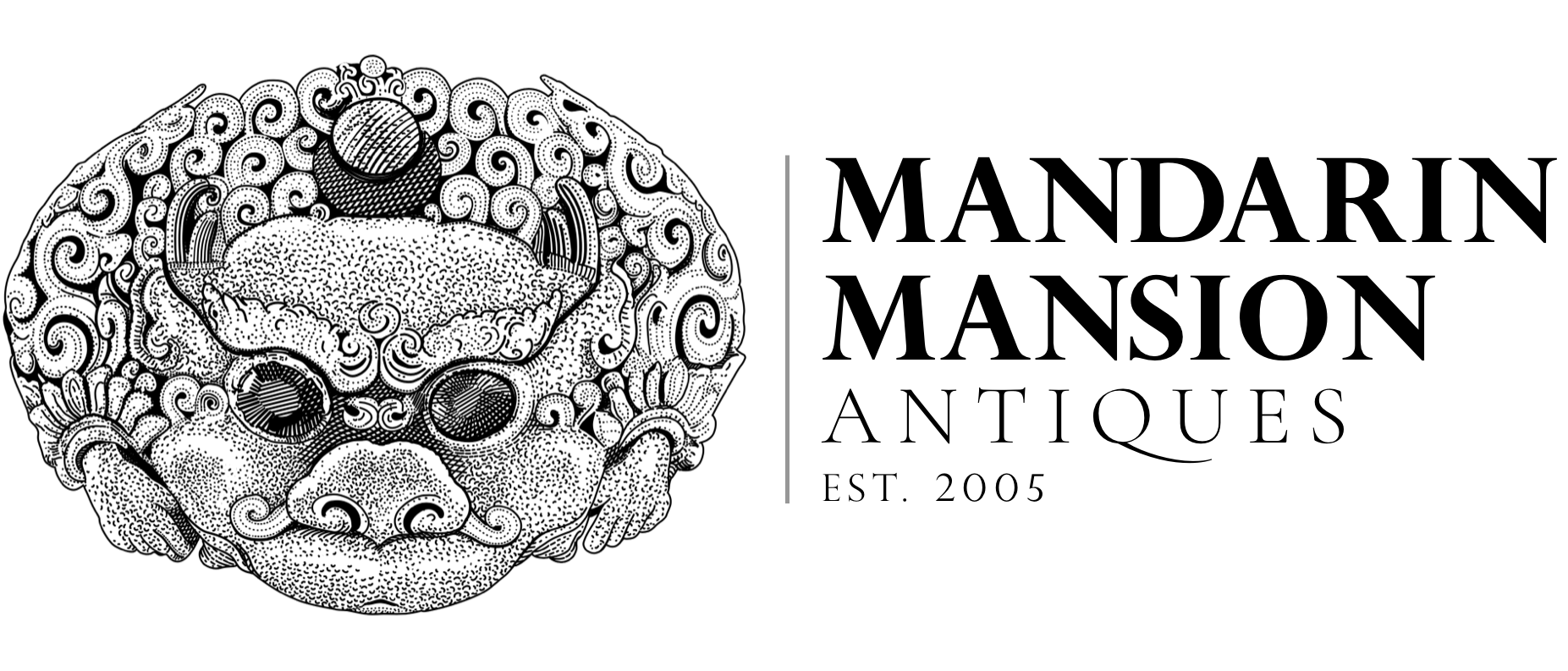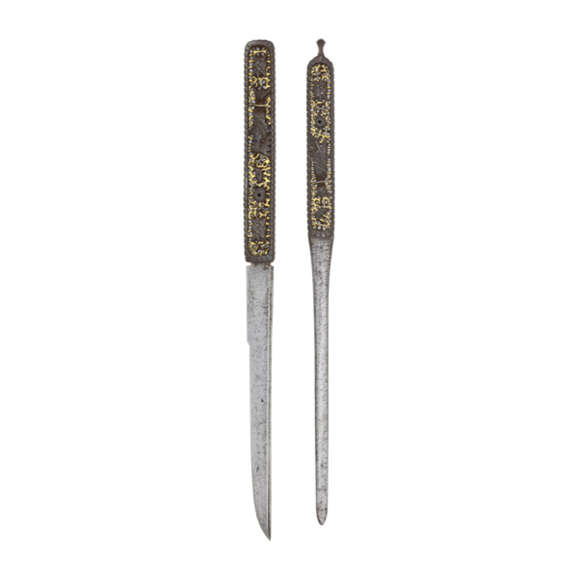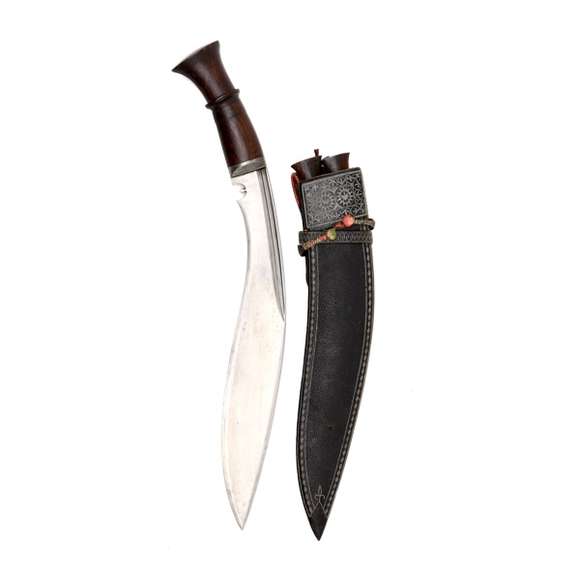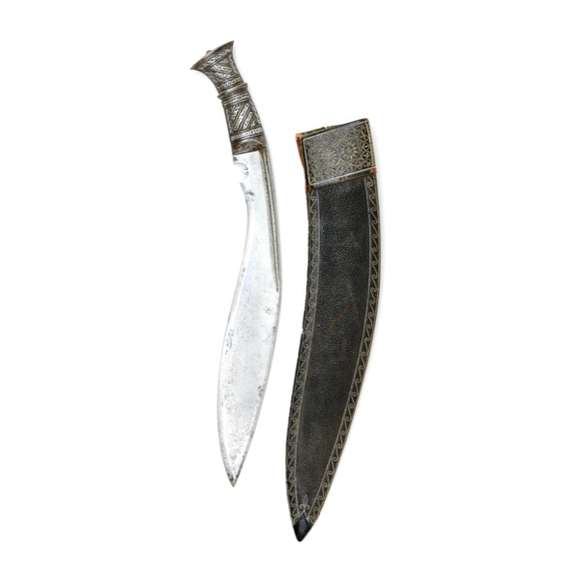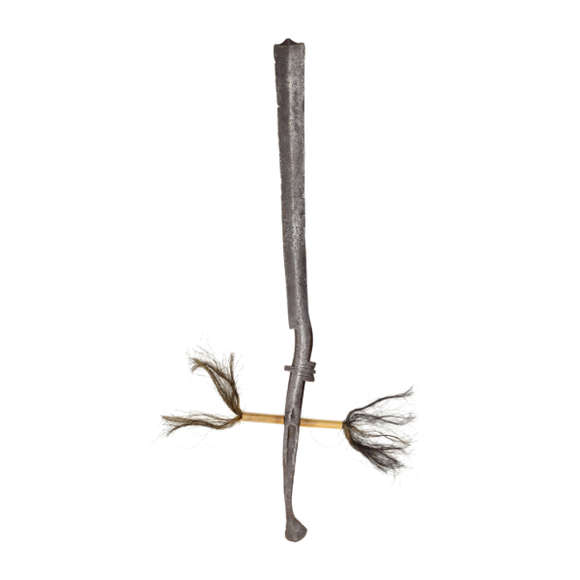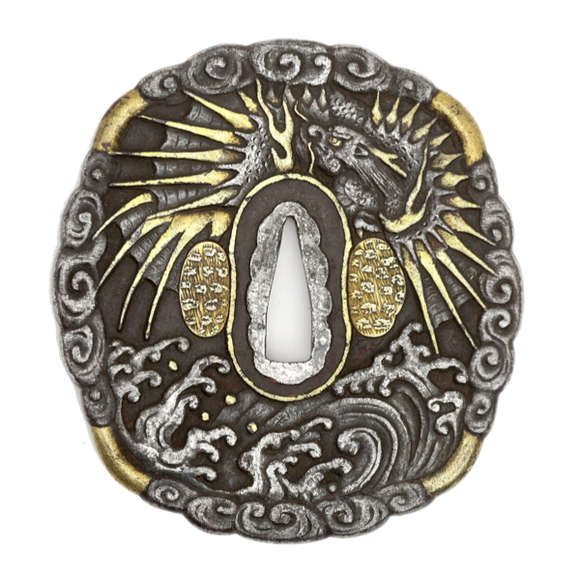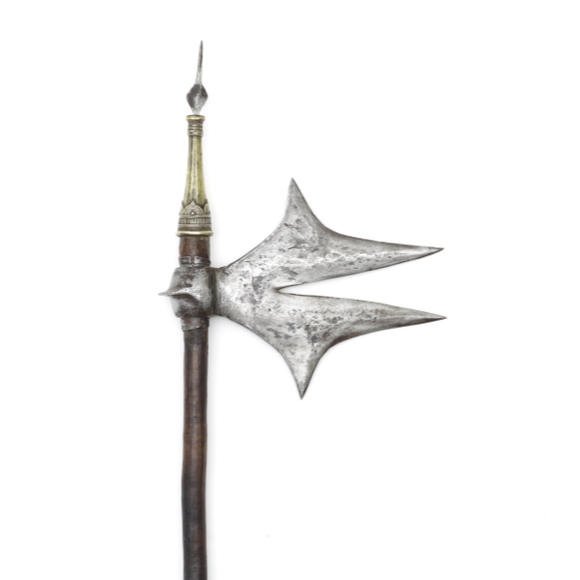The only set of its type known to me in both private and museum collections.

Sheathed 64.7 cm
Sword 61 cm
49 cm
Base 4.4 mm
Middle 4.2 mm
5 cm from tip 2.8 mm
Base 32 mm
Middle 31 mm
5 cm from tip 14.5 mm
Sheathed 807 grams
Sword 422 grams
11.8 cm from guard
Iron, steel, silver, copper alloy, copper, wood, silk velvet, coral
Eastern Tibet
18th - 19th century
From an American collection
Description
A very nice Tibetan shortsword. Understated, and very well made for this type of sword.
The straight blade tapers to a sharp point. It has flat sides and a ridged spine. Both sides show the hairpin laminations that are typical for Tibetan work. This blade has them not only at the tip, but also at the base. It's a design feature that I have come to associate mostly with Eastern Tibet. Blade is nicely preserved, quite straight, very sharp, and with no edge damage.
Hilt
The hilt mounts are all made of iron, with thick silver overlay. The overlay is so thick and well preserved that at first glance they appear as if made of silver. Close inspection shows the preparatory cross-hatching visible at some of the few spots where the silver was worn about. I've never seen overlay quite this thick and well done on a Tibetan sword.
The grip is wrapped with silver wire, the pommel adorned with a piece of Mediterranean coral, a prized possession in Tibet of old. At the back of the pommel is a ring for a lanyard. The tang's end is peened over a stack of washers in different metals, another feature that points towards Eastern Tibet.
The guard and ferrule are joined with two little lips that protrude through the guard, and were bent over to secure it. An interesting construction detail that is seen on some Tibetan swords but certainly not all.
Scabbard
The scabbard consists of the typical U-frame, holding two plates of wood that are covered with fabric, black silk velvet in this case. The scabbard mouth fitting is an iron band. Both are chiseled and pierced with decorative designs and overlaid, again with thick silver.
At the end of the scabbard is a gilt copper decorative mount, now tarnished by the underlying alloy. It is worked in repousse with stylized leaf designs.

Viewed from the top it is divided into three sections. It symbolizes the Triratna or "Triple Jewel" with the sections representing the dharma (doctrine), sangha (community), and the Buddha.




















An understated, elegant khukuri of substantial proportions with fine layered blade.
With iron, silver overlaid hilt. Its associated scabbard features fine quillwork.
This peculiar sword was used by the Garo people of Assam for fighting, clearing the jungle, and animal…
